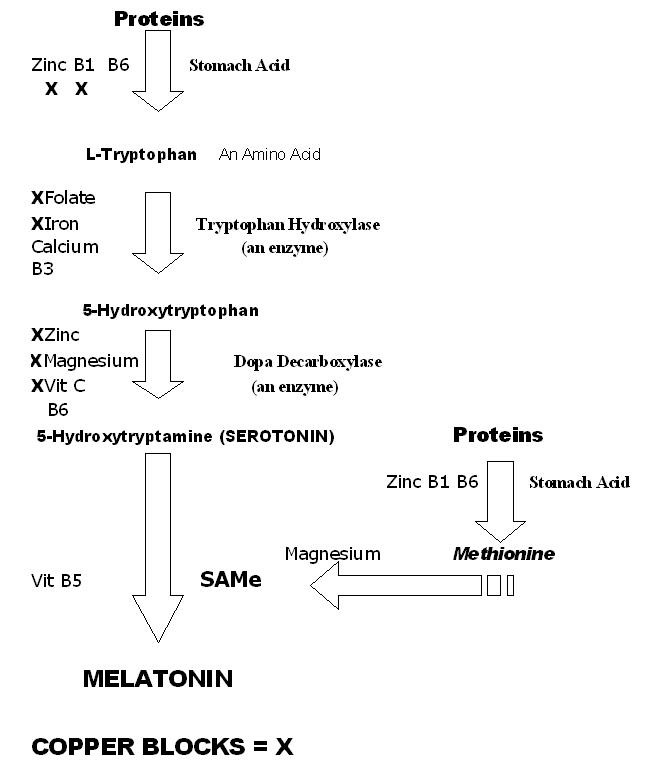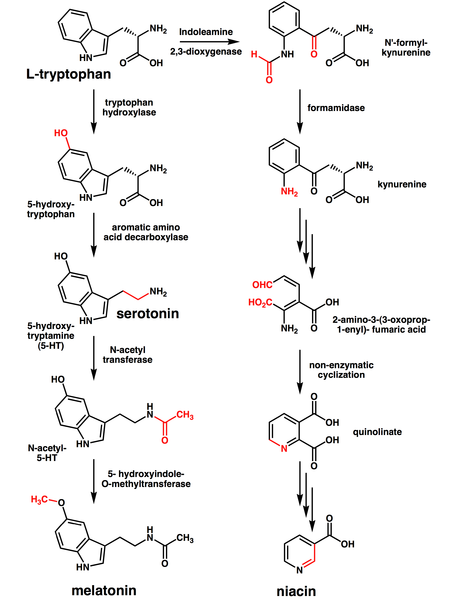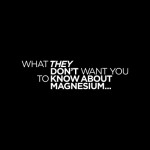The world has lost a treasured icon this week (8/11/14) with the shocking departure of Robin Williams (1951-2014).

Few of us alive today have not been graced by his gift for outrageous humor, and yet we have also been moved by his talent as a dramatic actor. Who here didn’t think he deserved the Oscar for his epic performance in “Dead Poets Society?” Despite these gifts, he suffered from “depression,” and is alleged to have taken his own life. How could someone sooooo funny, and so able to keep us laughing, struggle mightily with its polar opposite?
In fact, one of the MAG-pies asked today, “Is it possible that mineral imbalances caused his depression?…”
It was a sincere question, and the answer is both simple and sublimely complex.
The answer in one word, “Absolutely!”
Now let me explain…
It has been well documented, since 1926, that excess Calcium and too little Maggie causes depression. A more recent abstract is noted here. I first learned of this disorienting research and this Calcium/Magnesium dynamic from George & Karen Eby, and their wonderful website. Please know, George is not just some internet blogger. He’s a gifted researcher, who invented the Zinc lozenge, and intimately understands the power of minerals. And after suffering from depression for 13 years — he solved his “Zoloft deficiency” with nothing more than Magnesium Glycinate — in a matter of weeks. Much to his and his psychiatrist’s surprise.
And yes, there was a time when I thought the solution was entirely that simple. Regrettably, the more I study these mineral dynamics, the more the plot thickens… but the theme is still very much focused on these *spark plugs* of life that define and dictate our well-being.
Let’s peel the onion back just another layer. And what we learn is that the Melatonin Pathway is profoundly important for normal levels of BOTH Serotonin and Melatonin:
This pathway is profoundly important…

In fact, there ain’t many pathways that are more compromised than this one across the Globe… It sets the stage for a great deal of despair, dismay, and ultimately, depression.
Please note the four distinct stages of metabolic activity that enables us to go from protein (Tryptophan) >> to our favorite sleep hormone (Melatonin), with a stop-off in between with Serotonin. And please also take stock of the many minerals and vitamins — the one’s we’re supposed to be getting from our daily diet — that support (i.e. ENABLE) these key processes to unfold naturally inside our bodies.
Now, let’s take a closer look and study the BIG BLACK “X’s” off to the side of these reactions… These are where excess, unbound Copper can and does BLOCK the pathway. Fascinating, eh?… And the only glitch that I’m aware of in this otherwise outstanding article/pathway is their failure to highlight the profound negative impact that unbound Copper can have on Vitamin-B6… And for those suffering with sleep issues, look no further for the root cause of your now sandbag eyes.
Excess, unbound Copper has a decided ability to destroy three key nutrients: Maggie (Mg), Ziggie (Zn) and their Buddy (B6). Yes, ALL three… And what many are not fully aware of, especially the mineral denialists we tend to turn to in times of strife, is that inside our bodies, there is a key triangle of interdependence taking place:
- Zinc is essential for the production of B6…
- B6 is essential for getting Maggie INSIDE the cell…
- Maggie is essential for keeping Ziggie inside the cell & body, by managing our “Stress!” Response…
Please know, I have used and/or referred to this chart scores of times… It’s simplicity & clarity to outline this pivotal pathway explains where much of what ails us originates. And yes, it IS all about the lack of minerals that are KEY to the optimal function of these critical enzymes. Truth be known, THAT is the very mechanism of “enzyme deficiency.” And given that Mg, Zn & B6 are also easily LOST TO a wide set of “Stressors!” — this seems to be a far more plausible explanation of the physiology, than the contrived nostrums of conventional practitioners seeking to have us believe the deficiency was inspired by asteroid activity on Mars or something to its equivalent.
And until today, I was satisfied that that article explained this metabolic dysfunction.
However, Fate today brought me to a very thoughtful discussion with a Mom in Essex, UK this morning, who just happened to comment on her 5-yr old son’s reaction to banana’s… His what?… Yes, she raised the banana card — and now it’s time for us all to buckle up our seat belts…
What is important to understand about Edward’s (not his real name…) condition is that he’s dealing with excessive Copper and the lowest level of Zinc I’ve ever witnessed on an HTMA (hair tissue mineral analysis). He was vaccinated as an infant and given Soy-based infant formula. (For those in the know, that’s a wicked combo of toxic metals and uber levels of Copper, and he’s now challenged by a notable Zinc deficiency that is contributing to severe food/chemical sensitivities, rashes over much of his body, and an overall lack of growth — his sister, who’s 2 years younger, is bigger than he is.) To learn more about the pivotal role of Ziggie in our bodies, please read this and this.
OK, enough about Ziggie… what’s the deal with “depression” and our focus on minerals?…
It’s actually quite fascinating…
What I discovered today is that there is an alternate pathway that was offered up by the brilliant sleuthing of Emily Deans, MD . There’s an entirely different pathway for L-Tryptophan to go down…. And as Dr. Deans points out, it is this alternate pathway that sets the stage for increased levels of Kynurenine . Huh? (I know what you’re thinkin’… Magnesium Man! is beginning to lose it, right?…)
As it turns out, excess Estrogen can gum the works of a key enzyme Tryptophan 2,3 Oxidase… And when we learn that this pivotal enzyme must be activated by Ferrous Iron, the Copper connection becomes even more important. If there isn’t sufficient Ceruloplasmin to bind up BOTH the Copper and the Iron, neither one works. And to further compound this dynamic, most, if not all, of the key Iron proteins (Ceruloplasmin, Ferritin, Hephaestin, Transportin, and Hemoglobin) are each Copper dependent… So, when there’s a notable Zinc/Copper mismatch like there is with Edward, he can’t break down the Tryptophan in the banana, and the day after, he gets very weepy according to his Mom…. Hmmmm. Weepy… all for a lack of bio-available Copper, proper forms of Iron and ultimately a lack of optimal enzyme activity. (Btw, the WORST thing you can do is take supplemental Iron for those low Iron proteins…)
For those inclined to dig a little deeper, here’s a fascinating overview:

So what happens is that the body slows the production of Serotonin (the 5-HTP “feel good” neurotransmitter on the left side of this chart) and then the body starts to increase the manufacture of Kynurenine (a “feel bad” chemical on the right side…)
And what is key to the proper function of the Tryptophan 2,3 Oxidase?… Well, as noted above, it requires Ferrous Iron to be available. When Copper is in excess, and at the same time “deficient,” it blocks the proper production of Ceruloplasmin, so there’s little chance that the proper form of Iron will be available for this reaction and thus setting the stage for yet another stimulus for “depression.”
So for those looking for a simple way to solve this issue of “depression,” please focus on your Magnesium status. But regrettably, there are many — far too many — that are also dealing with a roiling sea of Copper/Zinc mismatch that is destabilizing proper enzyme activity.
Again, as I’ve declared on the MAG FB page time, and time, again:
- There is NO such thing as “medical disease…”
- There is ONLY “metabolic dysfunction”…
- That is CAUSED by “mineral deficiencies…”
Hopefully, this brief overview begins to emphasize the importance of mineral balance and mineral ratios, particularly as it relates to this concept of “depression” now being discussed ad nauseum on the media, yet with NO explanation for the actual physiological and mineral dynamics driving this set of symptoms.
I will close this post by stating that there is an historical connection between suicide and Mg deficiency. Given that Robin Williams is believed to have taken his own life, this is a relevant nuance to examine.
In 1968, J.I. Rodale wrote a small, but incredibly important book on the vital role of Maggie in our day-to-day lives. By the grace of God, Paul Mason has this amazing book on his www.mgwater.com website. The ENTIRE book is well worth the read, but Chapter 19 is most relevant to our discussion.
There is, and has been, a clear and compelling link between severe Mg deficiency and the taking of one’s life. In fact, the feelings of “helplessness & hopelessness” that often precede the willingness to take one’s life, are recognized as a profound state of “Stress!” — and this state of mind, too, CAUSES a massive loss of Magnesium.
So, yes, the world has lost one of it’s greatest comics & actors. But it is a tragedy for three distinct reasons:
- Our world will never laugh, nor be moved in the same way again…
- The entire medical community is ill-equipped to explain the mineral dynamics outlined above, much less naturally correct the biochemistry of what has been shared… and
- The entire arsenal of “solutions” offered by our doctors, in fact, CAUSE mineral loss, esp. to Magnesium status.
Please re-read that third bullet, again… I’ll let you grasp the “1984!”-esque quality of this total disconnect (where White is black, & Black is white…) with human physiology that is VERY well chronicled in the literature, but is apparently sparingly read, nor taught in the hallowed halls of medical school classrooms & libraries around the world.
So what are some of the factors that led up to Robin Williams wanting to take his life? A long history of drug abuse, doing cocaine with John Belushi until John’s sudden death, most probably from a severe magnesium loss. Apparently, Robin also abused alcohol and he couldn’t stay sober even with repeated treatment. Alcohol and stimulant drug abuse BOTH deplete Mg and accelerate our MBR (Mg Burn Rate). It is pure speculation, but I suspect that he had a pretty high MBR as a result of long-term drug and alcohol abuse, known angst about some of the actions that he had taken, ultimately resulting in a significant deficiency of his Magnesium stores.
May God Bless Robin Williams, his entire extended network of family & friends who are grieving his loss, and ALL those individuals around the Globe seeking to liberate themselves from this ever growing bondage of “depression.”
[And for those wondering why my “passion meter” is a bit cranked on this particular blog, it’s worth noting that my Dad suffered from “manic-depression” throughout his entire adult life, until his untimely death at the age of 56. He ultimately died of Lung Cancer, but my Mom shared with me that on more than one occasion, he contemplated committing suicide… What I wouldn’t do to share these simple, but profound insights about HOW & WHY this happened to him — and to each of us in our family.]
A votre sante!

